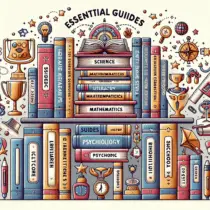Welcome to the exciting world of higher education! As a student embarking on this journey, you may be feeling a mix of excitement, anticipation, and perhaps a little bit of apprehension. But fear not! With the right guidance and resources, you can navigate your way through this new chapter in your life with confidence and success.
In this comprehensive guide, we will cover essential tips and strategies that will help you thrive in higher education. From time management skills to study techniques, we’ve got you covered. So sit back, relax, and let’s dive into the world of academic success!
Time Management
One of the key factors in succeeding in higher education is effective time management. With classes, assignments, exams, and social activities vying for your attention, it can be easy to become overwhelmed. To stay on top of your work and avoid last-minute cramming sessions, it’s important to create a schedule and stick to it.
Start by using a planner or digital calendar to map out your weekly commitments. Allocate specific blocks of time for studying, attending classes, and engaging in extracurricular activities. Be sure to also factor in time for relaxation and self-care – burnout is real! By prioritizing your tasks and managing your time wisely, you’ll be able to juggle all aspects of your college life seamlessly.
Study Techniques
Another crucial element of success in higher education is having effective study techniques. Every student learns differently, so it’s important to experiment with various methods until you find what works best for you. Some popular study techniques include:
- Active Note-Taking: Instead of passively listening during lectures, actively engage with the material by taking detailed notes. Summarize key points in your own words to enhance retention.
- Flashcards: Create flashcards with key concepts or terms on one side and definitions on the other side. This method is great for memorizing information quickly.
- Group Study Sessions: Collaborating with classmates can provide fresh perspectives on challenging topics and help reinforce your understanding through discussion.
Remember that consistency is key when it comes to studying – aim for regular study sessions throughout the week rather than cramming all at once before an exam.
Mental Health and Wellness
It’s easy to neglect your mental health amidst the hustle and bustle of college life, but taking care of yourself is essential for academic success. Make sure to prioritize self-care activities such as exercise, meditation, or spending time with friends.
If you’re feeling overwhelmed or stressed, don’t hesitate to reach out for support. Most universities offer counseling services for students dealing with mental health challenges. It’s important to remember that seeking help is a sign of strength, not weakness.
Career Development
Your college years are a great opportunity to start building your career path. Take advantage of networking events, career fairs, internships opportunities offered by your university. Join clubs or organizations related to your field interests – this can help you gain valuable experience while expanding your professional network.
FAQs (Frequently Asked Questions)
- I’m feeling overwhelmed by my workload – what should I do?
- How can I balance my academic commitments with my social life?
- I’m struggling with a particular subject – where can I get help?
If you’re feeling overwhelmed by schoolwork,
consider breaking down tasks into smaller,
manageable chunks.
To balance academics and social life,
prioritize tasks,
schedule dedicated study times,
but also make time for relaxation
If you’re struggling
with a particular subject,
reach out
tutoring services,
professors,
classmates
</P





